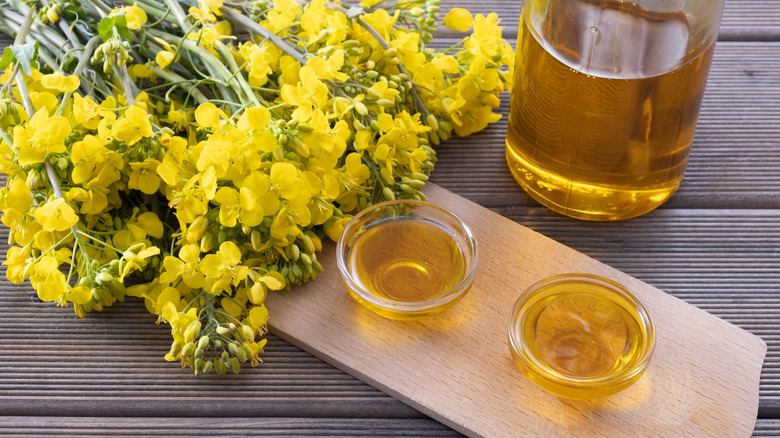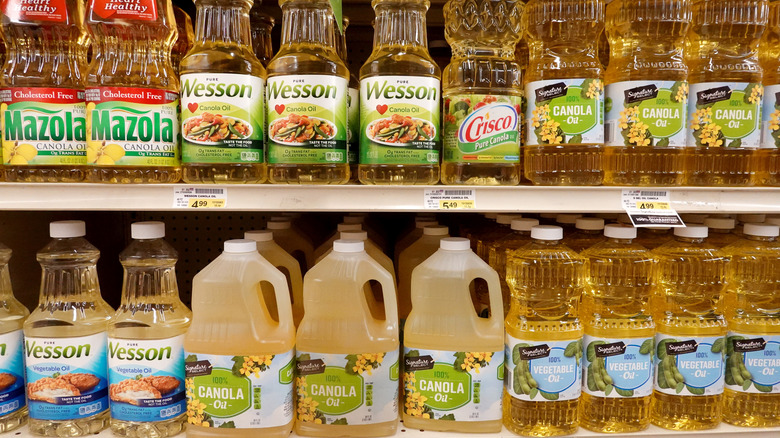Should You Really Avoid Canola Oil For Cooking?
Canola oil is known for its light flavor and high smoke point and is a common ingredient in countless dishes. The oil, which comes from a crop that grows on multiple continents and produces bright yellow flowers, is often utilized in heat-intensive cooking methods like deep frying, sauteing, baking, and grilling. Its uses aren't limited to heat-based cooking, though. Canola oil is also a common ingredient in salad dressings and can even be used around the house (it can make a cheap, easy pesticide, for instance) and in beauty and hair products.
But is canola oil actually safe for people to consume? There's been a lot of debate about whether canola oil is beneficial to humans or not, or if any positive effects are outweighed by negative ones. Even Harvard has invested their time in figuring it out. In a detailed report, Harvard's Associate Professor of Nutrition, Dr. Guy Crosby, shed some light on common concerns surrounding the popular oil.
The good news about canola oil
Humans need healthy fats in their diets, and canola oil offers some of those essential nutrients. According to Harvard's Dr. Guy Crosby, Canola oil contains heart-healthy fats like monounsaturated fat and polyunsaturated omega-3 fat. The oil also contains high amounts of phytosterols, which work to "reduce the absorption of cholesterol into the body." In 2018, the U.S. Food and Drug Administration (FDA) even concluded that canola oil may reduce the risk of coronary heart disease.
So, is it possible that canola oil is actually a superfood? Well, not exactly. As Dr. Crosby explains, most canola oil sold in stores contains anywhere from 1.9-3.6% trans fat, which has been shown to lower good cholesterol levels while raising bad ones. Dr. Crosby also warns that cooking canola oil at too high of a temperature can actually destroy some of those beneficial fatty acids. That means that when it comes to cooking with canola oil, it's important to think about how you're treating it just as seriously as how much of it you're consuming.

